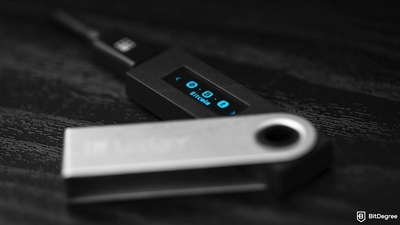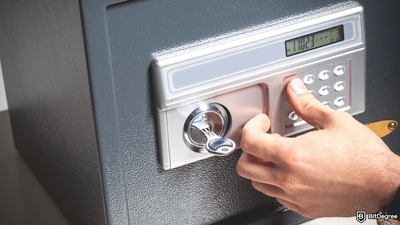Free Airdrop Season 7 is LIVE! Answer fun questions or do simple tasks to earn rewards from the $30K BitDegree prize pool. Participate Now ! 🔥
CER Reveals Surprising Neglect of Penetration Tests by Crypto Wallet Brands
CER granted a “secure” status to 47 out of 159 crypto wallets.
Recent findings from the cybersecurity evaluator, CER, illuminated a concerning trend in the cryptocurrency wallet sector.
Only six of 45 wallet brands have conducted penetration testing to gauge their security robustness.

Did you know?
Subscribe - We publish new crypto explainer videos every week!
How to Make Passive Money with NFT? (Explained!)


The study from CER conducted in July revealed that just 13.3% of analyzed crypto wallet brands tested their systems through penetration tests - a rigorous security assessment process.
Out of these brands, only MetaMask, ZenGo, and Trust Wallet have had their most recent versions tested for potential vulnerabilities. On the other hand, Rabby and Bifrost conducted these tests on previous versions, whereas Ledger Live's tested version remains ambiguous, marked as "N/A" in the survey.
The crux of penetration testing lies in its approach. In this security audit, experts mimic real-world hacking attempts, targeting software or devices without prior knowledge of their functioning, thereby simulating genuine breach attempts.
The CER report also provided a comprehensive ranking for wallet security. According to the report, the most secure wallets were MetaMask, ZenGo, Rabby, Trust Wallet, and Coinbase Wallet.
Interestingly, the report revealed a pattern: prevalent wallet brands, enjoying a vast user base, were more inclined towards rigorous security audits, primarily penetration testing. The rationale is evident - as these brands accumulate more users, the stakes also increase, necessitating stringent security to guard user assets. CER’s analysis supports this theory, stating:
Popular wallets tend to adopt more robust security measures to protect their increasing user base. This seems logical — a higher user base often corresponds to more significant funds to secure, more visibility, and consequently, more potential threats.
To determine wallet security rankings, CER employed a multifaceted methodology, evaluating elements like prior incidents, bug bounties, and integral security attributes, including password requirements and restoration mechanisms.
Despite the alarming lack of penetration testing, many wallet brands rely on bug bounties for identifying vulnerabilities, a proven deterrent against breaches. CER granted a “secure” status to 47 out of 159 crypto wallets, implying they surpassed the security benchmark score of 60.
It is worth noting that recently, Fireblocks uncovered serious vulnerabilities in popular crypto wallet technologies, such as Coinbase, ZenGo and Binance.
As the cryptocurrency sector advances, ensuring ironclad security becomes paramount. CER's findings are a pressing call to action, urging wallet brands to prioritize their defenses and safeguard their users' invaluable assets.























